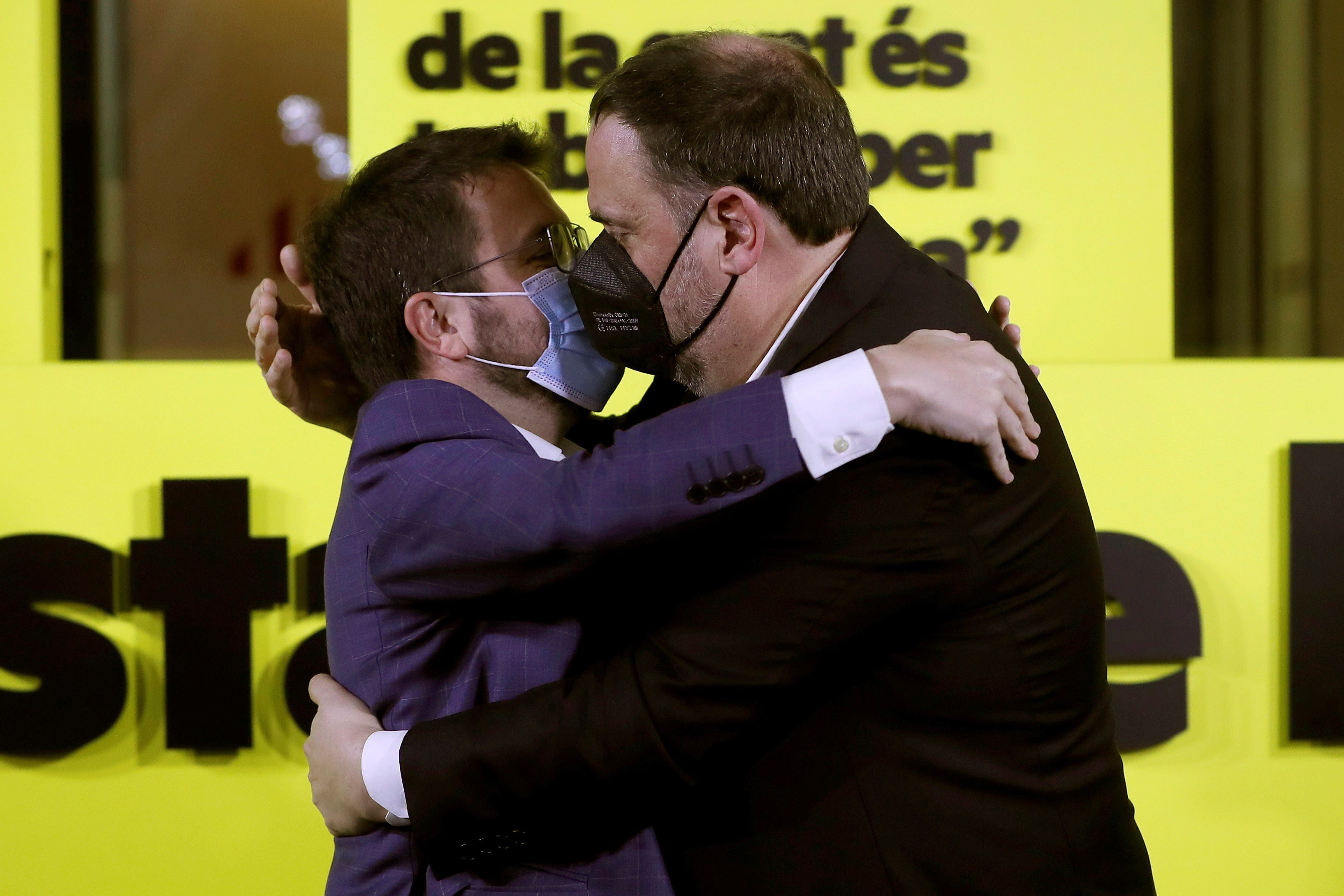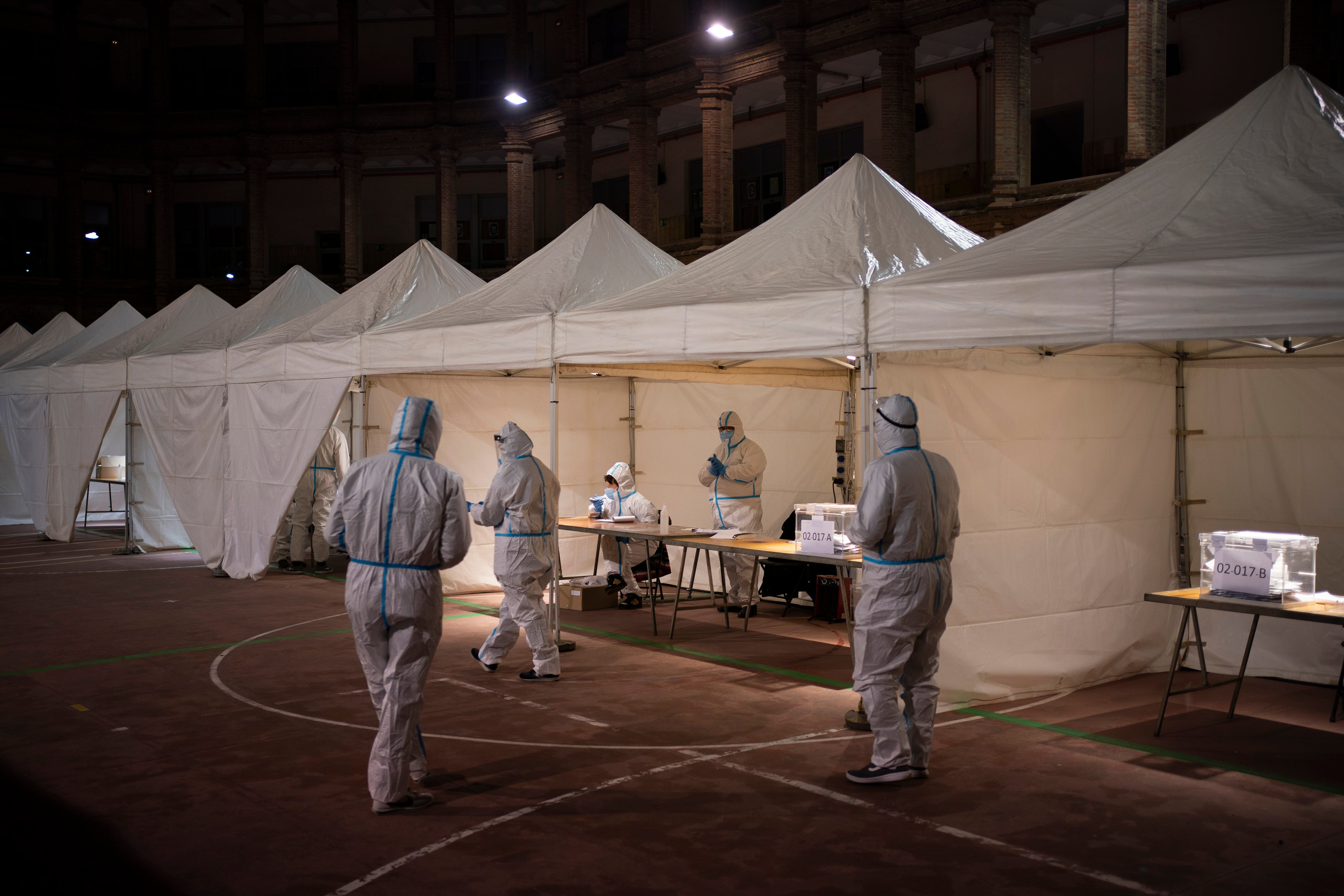Catalonia: Separatists set to make fresh independence push after electoral success
Separatist leaders said the election gave them ‘immense strength’ for a referendum on independence

Your support helps us to tell the story
From reproductive rights to climate change to Big Tech, The Independent is on the ground when the story is developing. Whether it's investigating the financials of Elon Musk's pro-Trump PAC or producing our latest documentary, 'The A Word', which shines a light on the American women fighting for reproductive rights, we know how important it is to parse out the facts from the messaging.
At such a critical moment in US history, we need reporters on the ground. Your donation allows us to keep sending journalists to speak to both sides of the story.
The Independent is trusted by Americans across the entire political spectrum. And unlike many other quality news outlets, we choose not to lock Americans out of our reporting and analysis with paywalls. We believe quality journalism should be available to everyone, paid for by those who can afford it.
Your support makes all the difference.Catalan pro-independence parties won an increased majority in the first regional election since Spain was plunged into its worst political crisis in decades following a unilateral declaration of independence by secessionist regional politicians.
Despite an election campaign overshadowed by the Covid-19 pandemic, the result may reinforce the push for independence but this time through a negotiated settlement between Barcelona and Madrid.
The vote saw the Socialists take the largest share of the vote and the far-right party Vox securing its first seats in the politically turbulent region.
The Socialists won 33 seats and 23 per cent of the vote, but despite this will still struggle to form a government in Catalonia as they would need support from the left-wing, pro-independence Catalan Republican Left (ERC), which came second with 33 seats but 21.3 per cent of the vote, and the far-left En Comu Podem.
For the first time, pro-independence parties took more than half of the votes, winning 51 per cent, a rise from 47.5 per cent in the last regional poll in 2017.
Three secessionist parties now hold 74 of the 135 seats in the Catalan parliament, an increase of four seats.
Analysts predicted the most likely scenario will be a new Catalan government comprised of the ERC, the centre-right pro-independence Together for Catalonia, which came third with 32 seats and 20 per cent of the vote, and the far-left separatist party, Popular Unity Candidacy, which won nine seats and 6.7 per cent of the vote.
“We have an immense strength to achieve a referendum and the Catalan republic,” said Pere Aragonés, the acting Catalan president who led the ERC party.
Mr Aragonés urged the Spanish prime minister Pedro Sanchéz to open talks on a legal referendum on independence for Catalonia.
Despite the increased majority for pro-independence parties, the result is unlikely to lead to a repeat of the political crisis of October 2017, when separatists unilaterally declared Catalonia’s secession from Spain.
The moderate ERC party, which has helped to prop up the minority Socialist-led national government, prefers to start talks to resolve the independence issue with Madrid.
“There is no chance that the ERC will form a government with the Socialists as they signed a deal with other separatist parties not to deal with the Socialists. They are unlikely to go back on that,” said Oriol Bartomeus, a political analyst at the Autonomous University of Barcelona.
Salvador Illa, the former health minister who stood for the Socialists, will also present himself as a candidate to become the next Catalan regional president after the Socialist victory.
During the campaign, he focused on healing social divisions and investing in health services and the economy.
“Catalonia needs to turn its back on a decade of divisions. We need to get society back together again,” he told party followers.

The breakthrough of the far-right Vox party, which won 11 seats and 7.6 per cent of the votes, threatens to polarise politics further in Catalonia.
The party, which is the third largest force in Spain’s national parliament where it has 52 seats, has campaigned to outlaw pro-independence parties and deport illegal migrants in Catalonia, which has a large Muslim population.
Despite the result, support for independence in Catalonia has diminished in recent years in the wake of divisions between separatist parties.
A Catalan government poll last month found 47.7 per cent of Catalans are against independence and 44.5 per cent in favour.



Join our commenting forum
Join thought-provoking conversations, follow other Independent readers and see their replies
Comments